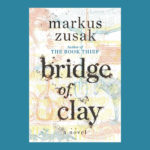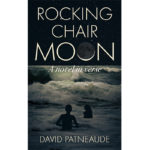Review: THE GOLDFINCH
I’m not exactly stepping out on a limb, here, pulling a giant gold nugget out of a muddy creek, polishing off a diamond in the rough, going with a twenty-to-one longshot pony and pulling off a victory, or whatever other metaphorical device you might come up with to illustrate accomplishing a singular and unexpected feat.
What I’m talking about is this, my superfluous critique of Donna Tartt’s novel The Goldfinch. I mean, once a novel has won the Pulitzer, does it make any difference what I say about it? Plus, the book was published in 2013, so like that longshot horse, I’m kind of trailing the pack.
But I just read the book. And I feel as if I should say something about it, spread the word to the stragglers, in case there are others out there who haven’t read it yet and want a review that isn’t half a decade old. So here goes.
I don’t know what other novels were up for consideration for the 2014 Pulitzer, but I gotta say The Goldfinch deserved to be in the running. The story is dense and deep and the characters, all of them flawed to certain extents (slightly to largely), are not only memorable but haunting. Blemished or not, the main/point of view character, Theo, is someone you (or at least I) meld with, even when he’s screwing up his life. Likewise with his pal Boris, who does Theo one better by having a family that isn’t just dysfunctional; it’s nonexistent. Both of these young guys are pretty much turned loose in their early teens to fend for themselves. And the picture is seldom pretty. How would you have fared, left to your own devices in New York City or Las Vegas?
So, you feel for them. You pull for them. And the other characters in the cast (lots of them), no matter how many warts they have, seem human. Kind, evil, loving, hateful, addicted, ill, loyal, conniving, dishonest, whatever, I accepted that they were real. Ever go fishing? Get a barbed hook sunk in your flesh? Couldn’t get it out? That’s Donna Tartt’s characters.
Whether NYC, Vegas, or Amsterdam, the settings felt authentic. They felt like part of the narrative themselves, and that narrative is not one you can just settle in with and put on cruise control. Lots of abrupt starts and potholes and slowdowns and hairpin turns and tailgating and detours and defective signals, lots of jump-stops, lots of questions raised. The mood goes from quiet to oppressive to frantic to worrisome to terrifying and back again.
The writing is impressive. Writers don’t read good books to get templates for their own writing (at least I don’t know any), but I was often waylaid during my reading of The Goldfinch by attention-grabbing passages that made me read them once more, envious but also encouraged and electrified by seeing what it’s possible to do (but probably not duplicate) as a writer. Even the talking-to-the-reader aside/wrapup at the end was striking. And depressing. And hopeful.
Shorter analysis: If you haven’t read The Goldfinch, and you appreciate literary writing that doesn’t scrimp on a story line, you should give it a try.
 Previous Post
Previous Post Next Post
Next Post




